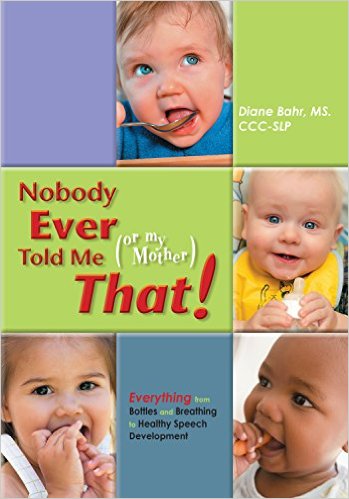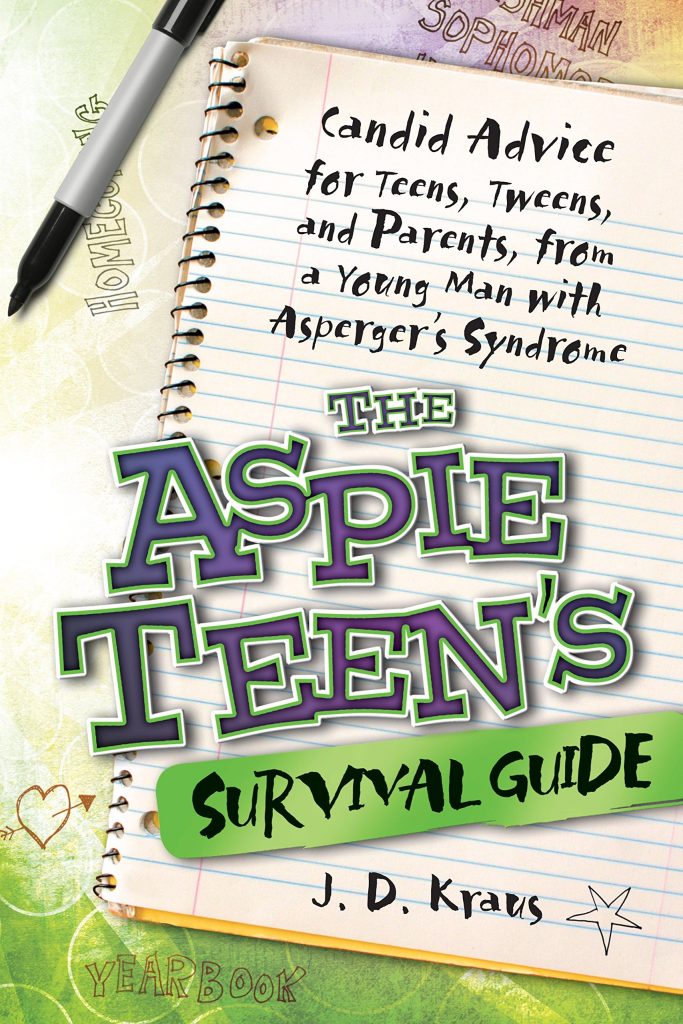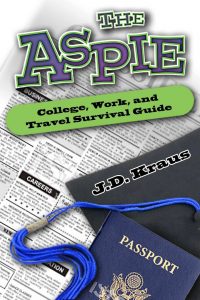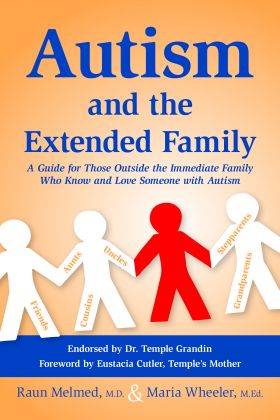
Products 



Books on Child Development, Autistic Teens and Young Adults, and Autism and the Extended Family
Raising children is difficult. Parents are often overwhelmed and insecure. If you are looking for practical advice for parents on everything you need to know about oral development from birth to 8 years, we have the perfect parenting book to recommend. Parents who are responsible for children with special needs face even greater challenges. Moms and dads raising autistic children are often stressed out with the demands of school, therapy sessions, and juggling other family responsibilities. Parents of tweens and teens with autism are always looking for information on how to help their growing child transition to high school and then to life after high school. We recommend two books written by a young man with autism. What do families raising children with autism need? First, each family with an autistic child needs professional guidance. Secondly, each family also needs an extended family to support them. Who constitutes an extended family and how can they help? The last book in this post has all that extended family members need to help them know how to lend you a hand.1. Nobody Ever Told Me (or My Mother) That! Everything from Bottles and Breathing to Healthy Speech Development

By Diane Bahr, MS, CCC-SLP
This is the child-rearing book you need to raise children with the healthiest feeding, speech, mouth, and facial development possible. It is filled with immediately doable, useful information that is expertly organized to be your reference parenting tool. Parents, bottle- and breast-feeding mentors, and pediatricians will find thorough, step-by-step activities and strategies for proactive parenting and prevention of feeding and speech problems. This parenting guidebook eliminates guesswork and helps parents feel more confident and less overwhelmed. Features of this book: • detailed table of contents with chapter titles that make it easy to find information • an index that makes this a go-to book when parents and other caregivers need information quickly and often • sample log sheets to track health concerns, allergens, and possible allergy-related problems, food diary, etc. • color photos of children and parents that support the content, demonstrating the techniques written about • charts to help you identify your child’s development at various ages and stages • activities to help you learn techniques and strategies quickly and easily • “Key Topics in this Chapter” clearly stated in bullet format at the beginning of each chapter • chapter titled "How Does This Apply to My Child with Particular Special Needs?" with seven categories of special needs: prematurity, Down syndrome, autism, cerebral palsy, hearing loss, other developmental delay, and cleft lip and palate Once you have your book in hand, you need to know how to use it. The free parent book guides on author Diane Bahr’s website can help you to quickly and easily navigate the extensive information found in the 390-page book. You can look up information by age and/or topic as needed. Read complete review2. The Aspie Teen’s Survival Guide: Candid Advice for Teens, Tweens, and Parents, from a Young Man with Asperger’s Syndrome

By J. D. Kraus
This book covers topics that are a thorn in the lives of youth with high-functioning autism. It is a resource book that autistic teens and family members can refer to often and easily to find solutions and explanations. You will find well-organized chapters with precise titles and a detailed index. It is a very good book for the Aspie/autistic teen or to give to teachers, family members, or friends who could benefit from Kraus’s sound and sage advice. The book was written when Kraus was still in high school; therefore, your autistic teen will be able to relate to his advice. He goes into great detail explaining how he felt and coped with the following topics: • transitioning from middle school to high school • sensitive senses • motor skills and awkwardness • stress, meltdowns, and anxiety • learning language: body language, metaphors, slang, idioms, vocal tones, etc. • bullying • socializing and friendships Read complete review3. The Aspie College, Work, and Travel Survival Guide

By J. D. Kraus
The main focus of The Aspie College, Work, and Travel Survival Guide is on the transition from high school to your next important steps in life. Big decisions have to be made, and what the teen Aspie decides ultimately affects the rest of his or her life. The book analyzes three important points: • Higher education: Will he go to college? Should he choose to attend a community college, technical school, or university? The book goes into detail on the steps for enrolling in a school, campus life versus daily commuting, teachers, school surroundings, an organizing system to manage class papers, study tips and time management, disability services, and more. Chapter 5 is all about college transfers and changing majors. Other chapters tell you about budgeting and buying food, the importance of making and keeping friends, and finding yourself some downtime. • Workforce: The section focusing on how an individual with autism can prepare for employment includes résumé building; job hunting and interview tips; commuting; managing money; and networking. • Basic tips on traveling: The discussion on domestic and international travel includes how to pack, choosing an airline, what to bring, and how to behave and dress in a foreign country. Read complete review4. Autism and the Extended Family: A Guide for Those Outside the Immediate Family Who Know and Love Someone with Autism

By Raun Melmed, M.D., and Maria Wheeler, M.Ed.
Positive outcomes for children with autism and their families can be achieved if extended family members learn and understand how to act as extra cheerleaders and a built-in support group. They must learn about autism so they can understand the impact autism has on the immediate family and why you may display certain behaviors regarding social functions, family gatherings, etc. The book's features include: • a conversational writing style easy to understand for all extended family members • uplifting information inspiring hope to motivate members to lend a helping hand • CAUTION boxes with important points to remember • CASE EXAMPLE boxes with real life stories to make a point • bullet lists that summarize content to make it easier to remember or read again • table of contents with 11 chapters (although there is no index, the information for each group of extended family members has its own chapter title, such as Chapter 4: Grandparents; Chapter 7: Uncles and Aunts; and Chapter 8: Cousins) • 9 activity pages with titles like “Create an Autism Kit,” "Tips for Toileting and Eating," "Everyone Should Practice Stress Management" Read complete review


